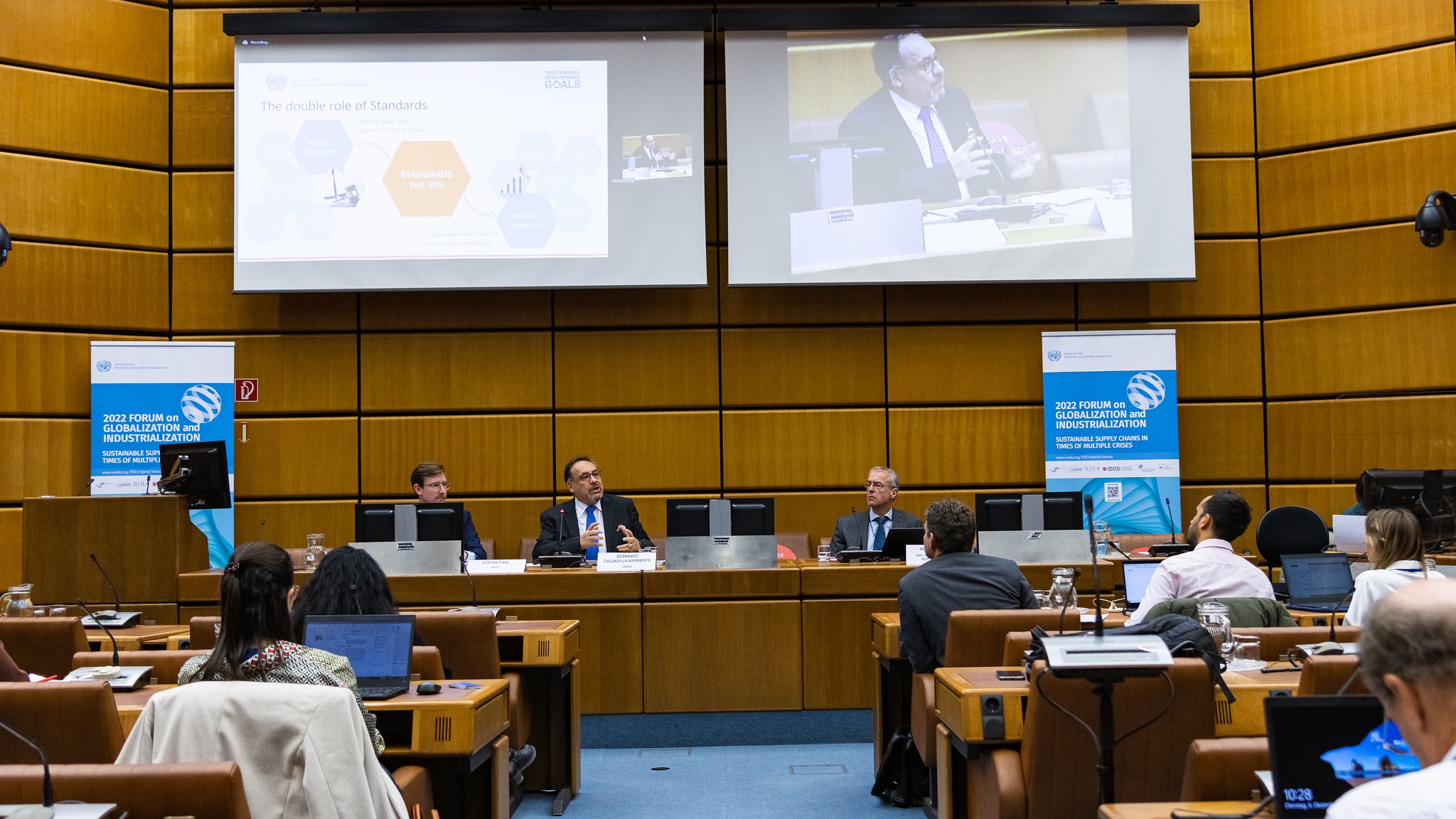Sustainable supply chains in times of multiple crises
06 December 2022

VIENNA – While many countries are benefiting from participation in global supply chains, achieving environmental, social and economic sustainability remains a key challenge. Multiple crises amplify this challenge, where sustainability goals and crisis responses may seemingly be at odds.
The seventh edition of the Forum on Globalization and Industrialization tackled the timely subject topic of “Sustainable Supply Chains in Times of Multiple Crises”. This year’s Forum brought together more than 300 participants from over 50 countries in virtual plenaries and discussions.
As a starting point for the Forum's hybrid plenary sessions, Bernardo Calzadilla-Sarmiento, Director of UNIDO's Division of Fair Production, Sustainability Standards and Trade, noted the complementary role of due diligence directives and voluntary standards in achieving sustainability in global supply chains, emphasizing UNIDO's active engagement in this field. Moreover, Calzadilla-Sarmiento highlighted the relevance of collaboration among stakeholders to address sustainability in global supply chains, stating that a “partnership approach is fundamental, to inform decisionmakers, share best practices and work towards common goals”.
Alongside the welcoming remarks, Katharina Hornidge, Director of the German Institute of Development and Sustainability (IDOS), echoed the crucial role of open and constructive cooperation forms aligned with social and ecological standards to “ensure equal benefitting of inclusion into global supply chains”. Amrita Narlikar, President of the German Institute for Global and Area Studies (GIGA) conveyed that “environmental and social sustainability in global supply chains is a major challenge today”. The Acting President of the Kiel Institute for the World Economy (IfW), Holger Görg, encouraged the particular interest of this year’s Forum in the perspective of the Global South, expressing that “any shock in the global supply chain affects all the countries involved, especially the Global South”.
The three panel sessions brought together business practitioners, policy experts, and academics, debating the interplay of the multiple (economic) crises and the urgent need for sustainability in global supply chains and beyond. The discussions delved into emerging due diligence directives on sustainable practices in supply chains and what their implementation means for the Global South. Panelists emphasized the importance of addressing the implementation, costs and potential unintended consequences of these directives, as well as the significance of incorporating the Global South in the formulation and implementation of such directives.
In this context, the second session explored the geopolitical challenges of sustainability in supply chains, while the third session focused on what opportunities and strategies exist for local value creation and technological learning in the case of green hydrogen.
UNIDO has been working closely with its partners in supply chain development and continues to adapt its broader strategy to better incentivize sustainability practices along global supply chains and assist developing countries in meeting the production demands and addressing their needs in the context of sustainability.
The Forum on Globalization and Industrialization is a joint initiative of the United Nations Industrial Development Organization (UNIDO), the Kiel Institute for the World Economy (IfW Kiel), the Kiel Centre for Globalization (KCG), together with the Research Network on Sustainable Global Supply Chains, the German Institute for Global and Area Studies (GIGA Hamburg), and the German Institute for Development and Sustainability (IDOS), and is supported by German Federal Ministry for Economic Cooperation and Development (BMZ).For more information, please contact:
Stefan Pahl, UNIDO Associate Impact and Innovation Officer